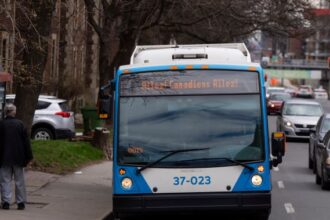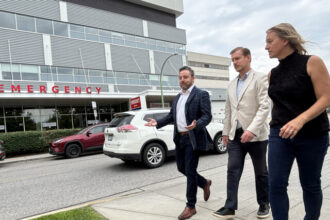In an unprecedented move to address critical healthcare staffing shortages, British Columbia has launched an aggressive recruitment campaign targeting medical professionals across Western United States. The province’s health authorities have unveiled a comprehensive strategy that includes digital advertising, social media outreach, and virtual information sessions aimed at enticing American healthcare workers to relocate north of the border.
The campaign, which represents a significant investment in BC’s healthcare infrastructure, focuses primarily on California, Washington, Oregon, and Arizona—states with large pools of qualified medical personnel but increasingly challenging work environments. According to provincial health officials, the initiative specifically targets nurses, laboratory technologists, and various allied health professionals where shortages have become particularly acute.
“We’re facing a perfect storm of retirements, burnout, and increasing demand,” said Dr. Eleanor Matthews, executive director of workforce planning at BC Health. “While we continue to train local talent, we need immediate solutions to ensure continuity of care for British Columbians.”
Data from the BC Ministry of Health reveals that approximately 4,300 nursing positions remain unfilled across the province, with rural areas experiencing vacancy rates as high as 25 percent in some specialties. Laboratory services and diagnostic imaging departments have been particularly hard-hit, forcing some facilities to reduce hours or temporarily suspend certain services.
The campaign emphasizes British Columbia’s competitive advantages, including comparable salaries when adjusted for cost of living, comprehensive benefits packages, and quality of life factors that distinguish Canadian healthcare settings from their American counterparts. Advertisements highlight BC’s natural beauty, affordable housing options outside major urban centers, and a healthcare system focused on patient outcomes rather than profit margins.
“American healthcare workers are increasingly frustrated with corporate healthcare models that prioritize efficiency over compassion,” noted Dr. Matthews. “Our system isn’t perfect, but it offers something many professionals crave—the ability to practice medicine without the constant pressure of revenue generation.”
The recruitment initiative has already generated significant interest, with over 1,200 healthcare professionals attending virtual information sessions during the first two weeks of the campaign. Provincial officials report that applications from US practitioners have increased by 68% compared to the same period last year.
Critics, however, question whether this approach addresses the fundamental issues plaguing healthcare worker retention. The BC Nurses’ Union has cautiously supported the recruitment effort while emphasizing that working conditions for existing staff must improve simultaneously.
“Bringing in new colleagues is essential, but if we don’t fix the underlying issues causing burnout and dissatisfaction, we’ll just be filling a leaking bucket,” said Jana Markowski, BCNU representative. “We need adequate staffing ratios, better workplace safety measures, and meaningful input into healthcare decisions.”
The province has also implemented expedited credential recognition processes, working closely with regulatory colleges to ensure American qualifications are assessed quickly without compromising standards. Immigration pathways have been streamlined for healthcare professionals, with dedicated staff assigned to guide candidates through the process.
Financial incentives form another key component of the strategy, with relocation assistance packages ranging from $5,000 to $25,000 depending on the position and location. Rural and remote communities offer additional benefits, including housing subsidies and travel allowances for professionals willing to serve in underrepresented areas.
Early results suggest the approach may be working. Provincial health authorities report that 87 American healthcare workers have accepted positions in BC facilities since the campaign launched, with another 230 in advanced stages of recruitment. While these numbers represent just a fraction of the overall need, officials remain optimistic about the campaign’s long-term potential.
As healthcare systems worldwide compete for limited human resources, can British Columbia’s blend of professional opportunity and quality of life considerations create a sustainable advantage in the increasingly global market for medical talent?
























